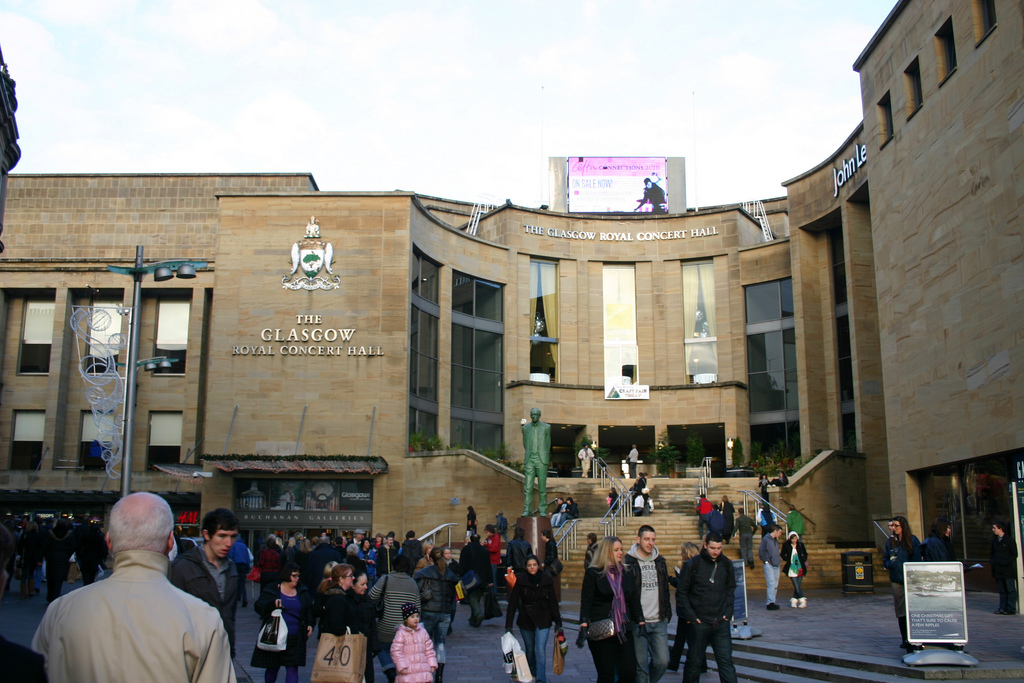
Image by Neil Turner under Creative Commons License, via Flickr
By Steven McGinty
On the 10th October I attended an annual event organised by the Scottish Public Health Observatory (ScotPHO) in the Royal Concert Hall in Glasgow. The event focused on health inequalities and the factors driving them. It brought together individuals from a variety of areas, including academia, public health organisations, local and central government, and the voluntary sector to review current evidence, highlight upcoming research and debate key issues with fellow professionals.
The day started with Diane Stockton providing an overview of the work carried out by the Information Services Division, a part of NHS Scotland, as well as the recent changes to public health research. It then moved into a series of interesting presentations by speakers from organisations such as the Poverty Alliance, the Glasgow Centre for Population Health (GCPH) and the Scottish Trades Union Congress (STUC).
Although all of the presentations provided a useful insight into different aspects of public health, the really engaging moments came from the two discussion sections. Each discussion reflected the presentations that had gone before, with the first focusing on the challenges of addressing public health issues, and the second looking more at what drives inequalities in society.
The first discussion raised several interesting points.
- The idea of a ‘perfect storm’ was proposed, where tackling poor health among certain groups was particularly challenging because of the interaction between several issues, for example the relationships between mental illness, obesity and poor housing.
- That it’s important to translate the problems of poor health to the general public, so that health issues are addressed at an individual level and to ensure public support for policies that would address public health problems.
- That green spaces have been shown to support good health and that there is an opportunity to create more green space if more could be done to release derelict land and buildings from local councils and other organisations.
- That, since devolution, the Scottish Parliament has been very supportive of addressing the public health issues in Scotland, suggesting that sometimes its policies are even ahead of the evidence, particularly when it comes to the importance of green spaces.
In contrast to the previous presentations, which were apolitical and more research focused, the second round of presentations concentrated on the inequalities in society, looking at in-work poverty and the drivers of inequality. This in turn changed the dynamic of the discussion, giving it more of a political edge.
Instead of discussions on measuring the levels of poor health, topics such as the devolution of employment rights, the living wage, and the UK government’s approach to the unemployed were discussed. However, this new political dimension created a clear sense of unease for some. This was noted by the chairman of the event, Professor Phil Hanlon, who put this to the audience.
The response was that many professionals felt that these political debates were either too political for them to be involved in or were beyond their level of understanding. This is a debate too long for this article but it was certainly interesting to get a sense of the discomfort some professionals felt about becoming too political.
Overall, what I took from the event was that there is a wide range of professionals who have a genuine passion and commitment for the work that they do, whether carrying out research or working directly in local communities.
Share
Related Posts
By Donna Gardiner While free school meals (FSM) have been available in England on a means-tested basis since 1944, recent years have seen a renewed focus upon the potential benefits of providing free school meals to all school-aged children. Currently, ....
Today sees the start of Community Garden Week 2023. Across the UK, communities will be celebrating the many and varied types of community gardens, from children’s and neighbourhood gardens to therapy gardens and allotments. The benefits of community gardens are ....
By Hollie Wilson At the start of 2020, an independent review was published setting out what needed to be done to bring about changes to the care system for children and young people in Scotland. At the heart of the ....
The “No Wrong Door” (NWD) programme means exactly that – there is no wrong door to turn to for young people seeking support. NWD works on several core principles, which include working with young people’s birth family or guardians, allowing ....
